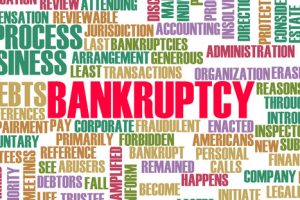What’s The Difference Between Chapter 7 And Chapter 13?

A number of times over the last hundred years, and perhaps most recently in 1998, the Supreme Court has reaffirmed that the purpose of the Bankruptcy Code is to give the “honest but unfortunate debtor” a fresh start. There is only one kind of honest, but there are several kinds of misfortune, which is why there are basically two types of bankruptcy.
The most successful bankruptcy debtors either are victims of unforeseeable, and usually once in a lifetime, financial storms, or they understand the mistakes they made and are committed to doing better. Many times, there is a little bit of both, as the debtor may have had an unhealthy financial habit or two that created a vulnerability to job loss, divorce, medical bills, or another unexpected event.
Chapter 7
If the debtor has mostly unsecured debts, which are credit cards and other debts that the debtor has promised to repay, an ill-named liquidation bankruptcy may be the best option. This nickname is inaccurate because, in most cases, Chapter 7 debtors do not lose any of their assets. By law, Indiana and Illinois debtors can keep their:
- – Retirement Accounts: If the IRA, 401k, or other nest egg was earned and not inherited, the debtor can keep the entire amount, regardless of the account balance.
- – House: Both Illinois and Indiana use value-based exemptions that protect a certain amount of home equity in a primary residence. Bear in mind that if the house is worth $200,000 and the debtor still owes $190,000, the exemption only needs to protect the $10,000 in equity.
- – Cars: The same rule applies for motor vehicles, and generally, new cars have almost no equity and used cars have almost no value.
- – Personal Property: Other personal property, including cash in many cases, is also exempt.
To determine value, the debtor must declare the as-is cash value (“garage sale”) value. This amount is usually much lower than the fair market value.
About six weeks after the debtor files a petition and schedules, the trustee (person who oversees the bankruptcy on behalf of the judge) reviews the paperwork to ensure that everything is in order, and about six months later, all unsecured debts are discharged.
Chapter 13
Other debtors have issues with secured debts, such as home mortgages and vehicle loans. In these cases, the debtor probably does not want the debt to disappear, because that would mean losing the secured asset. So, the wage earner plan is probably a better option. Chapter 13 debtors have up to five years to catch up on secured debts, and during the entire period, they are under the protection of the bankruptcy court. So, in most cases, moneylenders cannot take any adverse action during this time, and that includes anything from harassing phone calls to repossession.
During the trustee meeting, the debtor and trustee come up with an income-based repayment plan, which is nearly always a better alternative to the debt-based “repayment plans” that moneylenders offer.
Debtors can voluntarily convert their plans from Chapter 13 to Chapter 7, and vice versa, at almost any time. So, many debtors file a Chapter 13, and if they find they cannot afford the debt consolidation payments, they convert to Chapter 7, wrap things up quickly, and take full advantage of their fresh starts.
Go With Experienced Attorneys
Different distressed debtors have different legal options in bankruptcy. For a free consultation with an experienced bankruptcy attorney in Chicago, contact the Bentz Holguin Law Firm, LLC. Our attorneys are licensed in both Illinois and Indiana.
Resource:
scholar.google.com/scholar_case?case=583609839906134327&hl=en&as_sdt=6&as_vis=1&oi=scholarr


